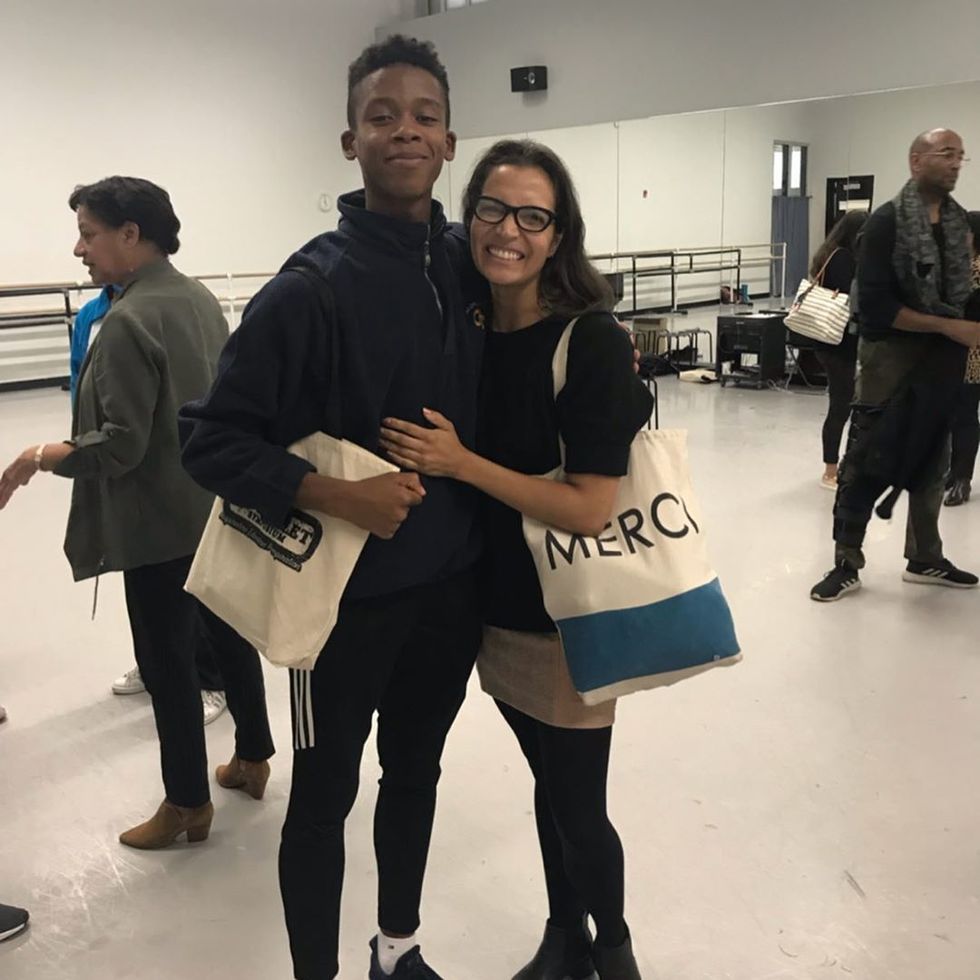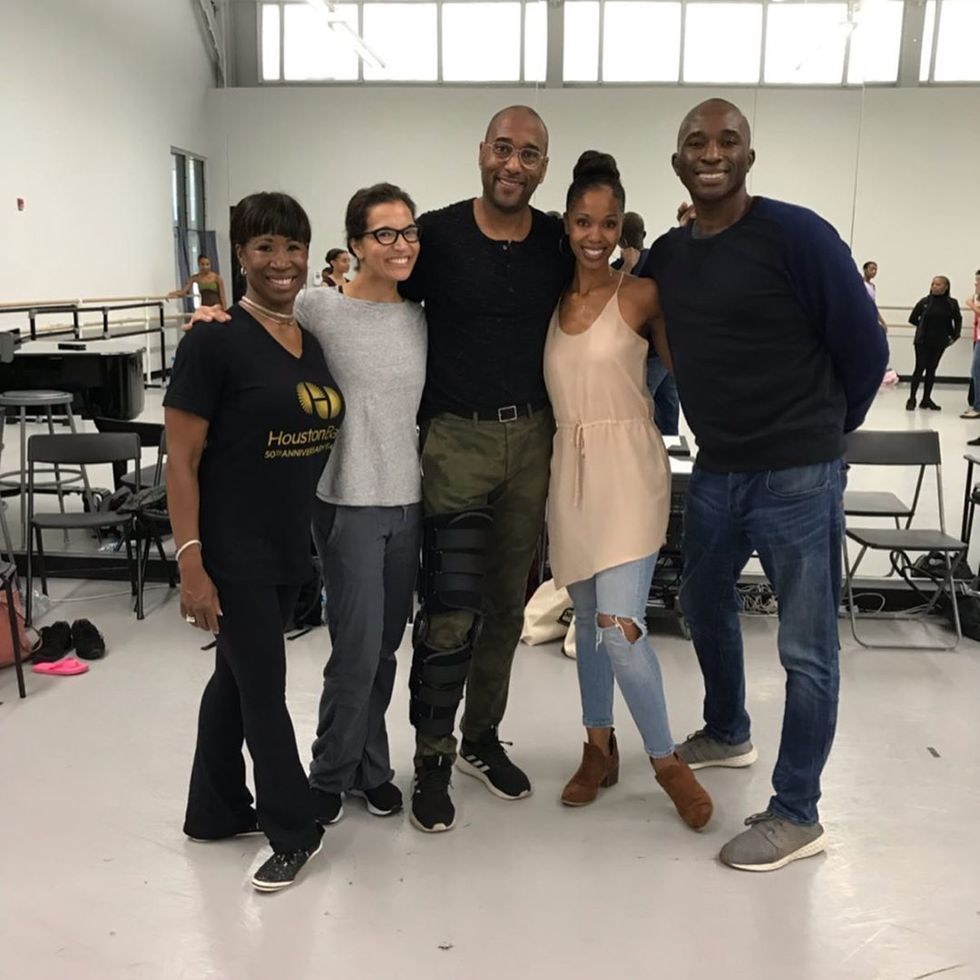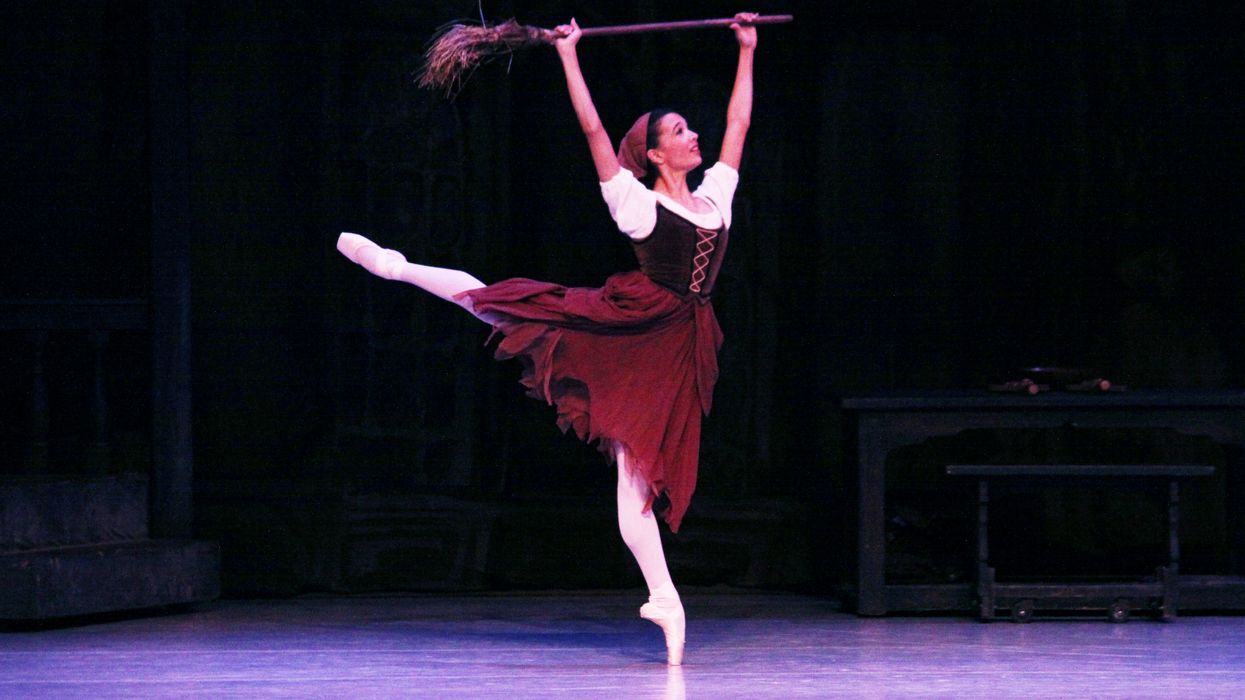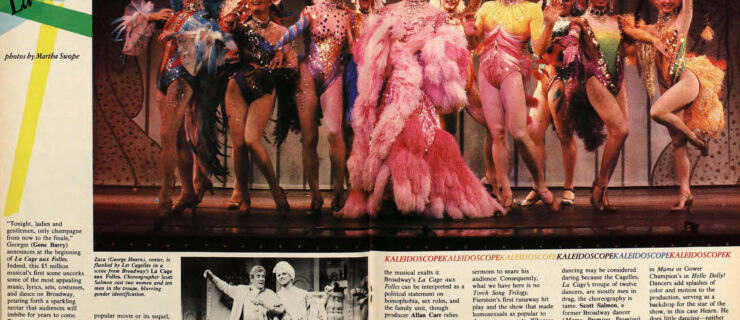Op-Ed: How I Finally Became Comfortable Sharing My Story As a Dancer from a Mixed Race Background
Throughout my ballet training, I never felt isolated or different. I trained in the School of Richmond Ballet where the focus of my teachers included straightening my knees and not sickling my feet, and never landed on my being from a mixed race background.
As I rose through the ranks of the school, the emphasis on technique, artistry and musicality continued without any shift in regard to my race, and when I joined the professional company at Richmond Ballet, my inclusive experience continued.
Once I became a professional I had the opportunity to interact with students at different schools as a teacher and as a mentor, and I grew increasingly aware that many black students were having a different experience than I did. As the national conversation on inclusivity, equity and diversity began to grow, I knew that my role as a representative of the black ballet community was important. But that community always felt a touch intangible to me. My face to face communication with it was, until recently, relegated mostly to a handful of dancers.
 Maggie Small at MoBBallet Symposium with School of American Ballet student Sam Merkle, who started in Richmond Ballet’s Minds In Motion program (and happened to be taught by Small’s mom in kindergarten).
Maggie Small at MoBBallet Symposium with School of American Ballet student Sam Merkle, who started in Richmond Ballet’s Minds In Motion program (and happened to be taught by Small’s mom in kindergarten).
Courtesy MoBBallet Symposium
Then, this fall, I attended the inaugural MoBBallet Symposium: Inspiration, Education, Perspiration. Multiple generations of dancers gathered to help students and teachers explore personal development, education and the history of blacks in ballet.
Founder and director Theresa Ruth Howard is working to establish a network of support for young, black dancers. Gathering an impressive group of former professionals, experts in related fields and high level students, she is providing the groundwork for something all young dancers need to thrive: a community where they feel they belong.
Theresa, who I initially got to know through her website mobballet.org, invited me to participate in the symposium as a mentor, underwritten by Richmond Ballet. Mentors took part in talk backs, observed and taught classes, and were each assigned mentees.
While I had access to many professional dancers as a child and was brave enough to ask some questions, an invitation to truly interact with them would have opened the world of dance to me much sooner. The candid conversations that mentors and mentees had on dancing as well as on life were informative and inspiring, and they fortified bonds so that students can now look to their mentors for help throughout the year.
Leading up to the weekend, I had anticipated finding myself moved mostly by the opportunities presented to the students. But I left grateful that everyone involved was walking away with an enhanced understanding of the past, the present and the possibilities for the future.
I’ve often had trepidations about sharing my own story. Because my path was easy, lacking controversy or triumph over challenge, I always assumed or inferred that people were not interested.
But for the first time, in both casual conversations and more formal meetings, I felt comfortable contributing my narrative. As others shared their perspectives, I found that each of us is sometimes reluctant to share because the platform to communicate openly without judgement is rare.
The stories ran the gamut. Aesha Ash discussed her journey with building confidence. Debra Austin mused on her history of defending her beliefs on how she was willing to depict her race on stage. One student wondered how to maintain her sense of empowerment upon returning home.
Each reflection touched on central truths. With a specific agenda to celebrate our commonality and create a welcoming environment for everyone involved to better understand one another and the legacy we are part of, the symposium was a safe space where everyone had a voice.
 Lauren Anderson, Maggie Small, Meredith Rainey, Aesha Ash and William Isaac
Lauren Anderson, Maggie Small, Meredith Rainey, Aesha Ash and William Isaac
Courtesy MoBBallet Symposium
Many mentors wondered how we might have been influenced by attending anything that even remotely resembled the MoBBallet Symposium as students. Each of us had a different need that might have been met by having so many resources. But the most prevailing thought was that we were grateful to be available to today’s students as they shape what dance will look like in the future.
With my retirement in September, my role in the dance world has shifted—I am no longer able to be the same kind of role model. Having been able to reach the black ballet community mostly from the stage, I initially worried that by retiring I would lose my ability to encourage young dancers.
But thanks to the people who share the inclusive vision that allowed me to have such a sense of belonging throughout my training and career, I am certain that I will continue to be in a position to inspire young dancers by helping to widen the reach of those values. I hope that as we continue passing on our art form with an increased awareness of our history and understanding of one another, the next generation will emerge with a sense of confidence and empowerment.




